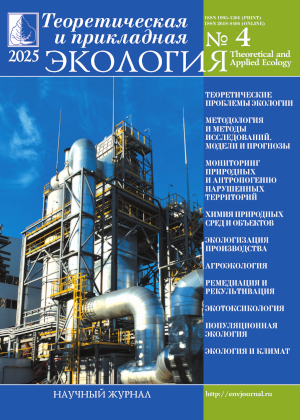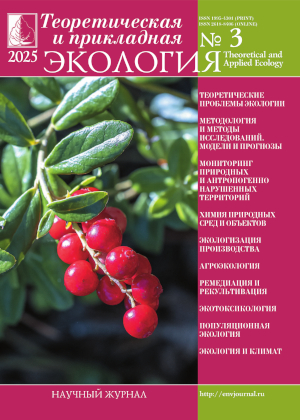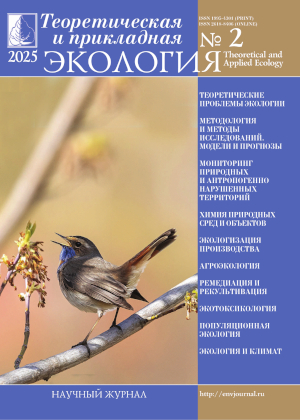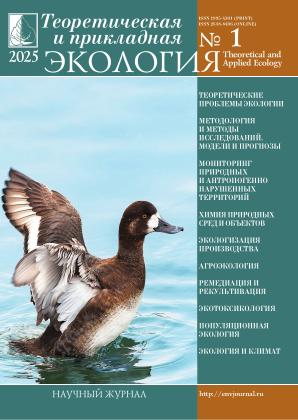 ISSN 1995-4301
ISSN 1995-4301(Print)
ISSN 2618-8406
(Online)
Online version of the journal
|
|
36, Moskovskya street, Kirov, 610000, Editorial Board "Theoretical and Applied Ecology." Phone/fax: (8332) 37-02-77 e-mail: envjournal@vyatsu.ru The journal was founded in 2007 |
||||||




 Select viewing options
Select viewing options